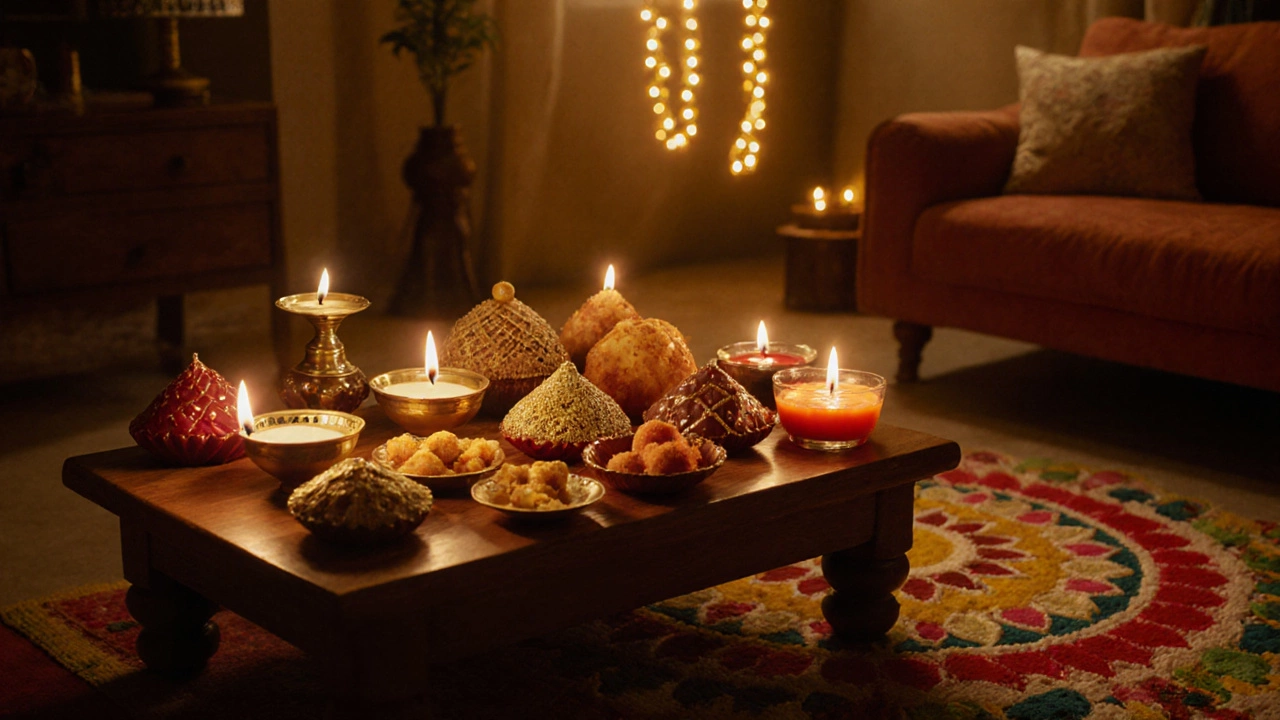
Why are sweets given during Diwali? Meaning and Traditions Explained
Discover the cultural and religious reasons behind gifting sweets on Diwali, explore regional treats, and learn tips for sharing the perfect festive sweets.
When you think of Diwali gifting, the tradition of exchanging thoughtful presents during the Festival of Lights, you might picture sweets in fancy boxes, gold jewelry, or decorative diyas. But Diwali gifting, the tradition of exchanging thoughtful presents during the Festival of Lights isn’t just about what you buy—it’s about what you mean. It’s a way to say thank you, to strengthen bonds, and to invite good fortune into someone’s home. In many parts of India, gifts are chosen carefully: something useful, something beautiful, something that carries a little bit of blessing.
But in Tamil Nadu, Diwali, the Hindu festival of lights celebrated across India doesn’t always look the same. For many Tamils, the real light festival is Karthigai Deepam, a Tamil-specific festival of lamps celebrated with oil lamps lit on hilltops and home altars, which often happens weeks after Diwali. That means Diwali gifting, the tradition of exchanging thoughtful presents during the Festival of Lights here isn’t always the main event. Some families save their biggest gifts for Karthigai, giving traditional brass lamps, cotton sarees, or homemade sweets like murukku and adhirasam instead of imported chocolates or designer candles. It’s not that Diwali is ignored—it’s just woven into a deeper, older rhythm of light and giving.
What you give also depends on who you’re giving to. For elders, it’s often clothes or gold coins. For kids, it’s toys or stationery. Friends get boxes of dry fruits or homemade snacks. Businesses give clients practical gifts like desk diya sets or custom calendars. And in Tamil households, it’s common to give something that lights up the home—oil lamps, candle holders, or even new kitchen utensils. The idea isn’t to spend the most, but to give something that feels personal, useful, and meaningful.
There’s also a quiet rule: never give empty containers, sharp objects, or black items. Empty boxes suggest emptiness. Knives or scissors imply cutting ties. Black is tied to mourning, not celebration. These aren’t superstitions to ignore—they’re cultural signals that carry weight. When you gift a box of sweets, you’re not just offering sugar—you’re offering sweetness in their year ahead.
And while global brands push flashy Diwali sales, the real heart of Diwali gifting, the tradition of exchanging thoughtful presents during the Festival of Lights stays local. It’s in the aunty who packs homemade laddoos in banana leaves. The uncle who gives a new set of brass puja items. The friend who brings a handwoven silk lampshade from Kanchipuram. These aren’t just gifts—they’re stories wrapped in tradition.
What you’ll find in the posts below are real stories from Tamil families about what they give, why they give it, and how Diwali gifting changes when you live far from home. You’ll see how people blend old customs with modern life, how some skip gifts entirely and give time instead, and how Karthigai Deepam quietly reshapes the whole gift-giving calendar. Whether you’re planning your own Diwali presents or just curious about how culture shapes tradition, these stories will show you that the best gifts aren’t bought—they’re chosen with care.

Discover the cultural and religious reasons behind gifting sweets on Diwali, explore regional treats, and learn tips for sharing the perfect festive sweets.